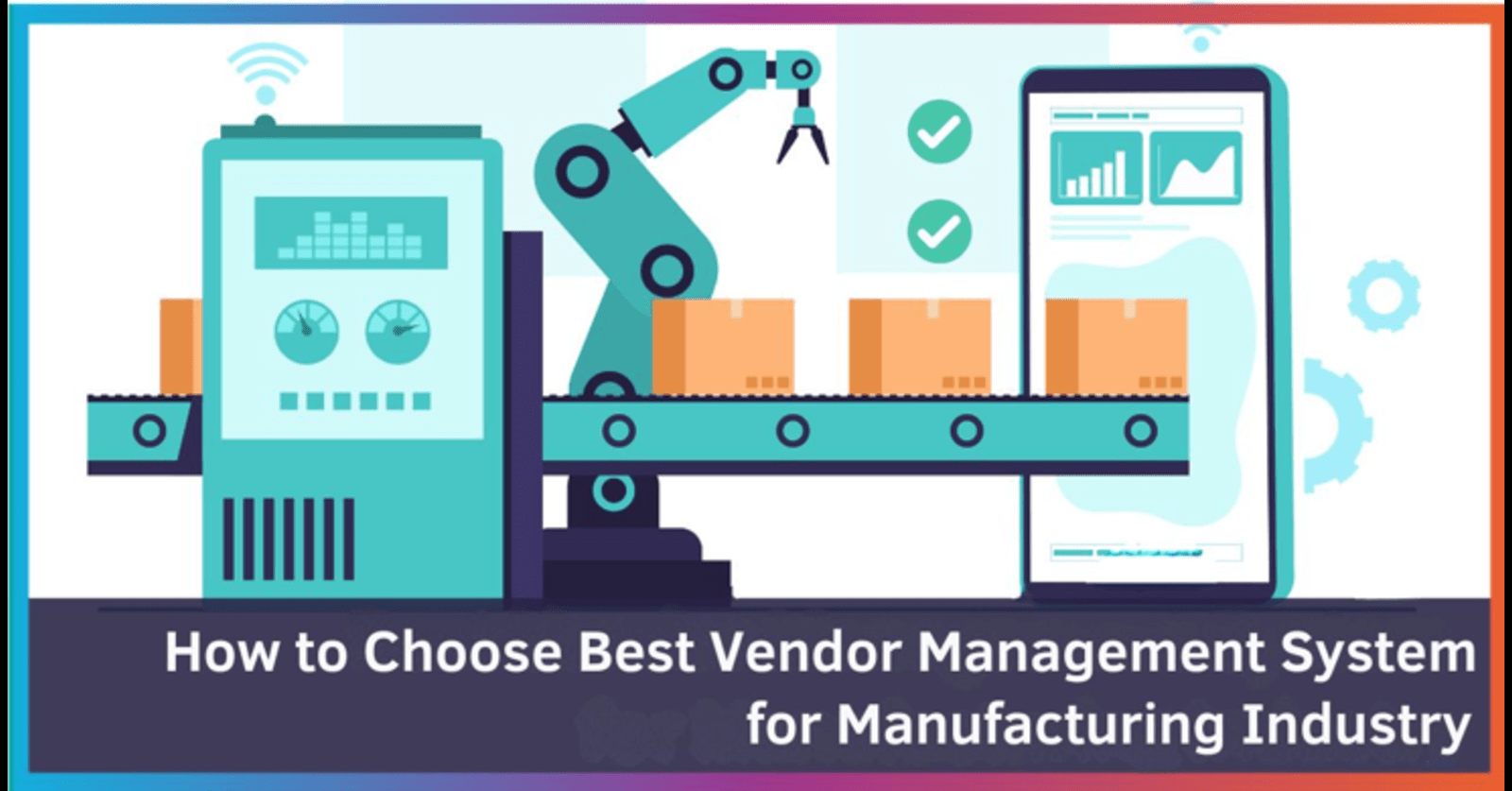How to choose the Best Vendor management system for the Manufacturing Industry
Posted On: Dec 01, 2023
Manufacturers often grapple with various challenges in their vendor relationships, ranging from fluctuating costs and supply chain disruptions to quality control issues. These hurdles can impede production timelines, hinder innovation, and jeopardize overall business success.
A robust Vendor Management System (VMS) can be a game changer. A well-implemented Vendor Management System acts as the linchpin, streamlining communication, enhancing collaboration, and ensuring transparency throughout the supply chain. It empowers manufacturers to proactively address challenges, mitigate risks, and seize opportunities for continuous improvement.
In a world where the strength of the manufacturing chain is only as formidable as its weakest link. A sophisticated Vendor Management Software emerges as the cornerstone for resilience and excellence, catalyzing a paradigm shift in how manufacturers navigate the complexities of their vendor relationships.
What are the Manufacturing Industry Needs?
The manufacturing industry operates within a framework of complexity, where the arrangement of supply chains, raw material sourcing, and precision-driven production schedules are paramount. Unlike many other sectors, manufacturers are completely tied to the unsteadiness of a vast network that spans suppliers, distributors, and partners.
Some of the non-negotiable factors that directly impact the industry's ability are:
- Raw material quantity
- Timely deliveries
- Adherence to stringent production timelines
These factors assist the industry to meet market demands and maintain competitiveness. In these complex dependencies, the need for a Vendor Management System (VMS) tailored to the unique demands of Manufacturing becomes strongly apparent.
A Vendor Management Software designed with a keen understanding of the sector's challenges can seamlessly integrate with the processes, offering a centralized platform for monitoring and optimizing every facet of the supply chain, from vendor onboarding to creating Purchase Order (PO), tracking vendor performance, and generating invoices.

Such a system not only addresses the industry's specific requirements but serves as a strategic asset, enhancing visibility, promoting agility, and ultimately propelling manufacturing operations to new heights of efficiency and resilience.
How Partner Portal Can Address Manufacturing Industry Requirements
Partner Portal is a robust cloud-based vendor management system with significant features, such as easy vendor onboarding, automated procurement process, easy inventory management, invoice generator, and more, that allow the manufacturing industry to streamline its supply chain operations. From vendor management to inventory management, Partner Portal empowers the industry to drive the process efficiently and enhance productivity.
Supplier management is a primary concern for manufacturers while emerging risks in cybersecurity, competition, labor, pricing, regulations, and international operations are also causing significant apprehension.
Some of the benefits of integrating Partner Portal for the Manufacturing Industry are:
- Streamline Vendor Onboarding: Partner Portal is a user-friendly system where vendors can easily submit and verify information online for compliance.
- Automated Procurement Workflows: Automate procurement workflows to minimize manual data entry errors in purchase order creation and invoice processing tasks.
- Performance Management: Enhance vendor performance monitoring through tracking key metrics such as on-time delivery, quality of products or services, and adherence to contract terms.
- Communication and Collaboration: Facilitate quicker communication and collaboration between companies and vendors.
- Risk Management: Mitigate risks associated with external vendors by tracking compliance, financial stability, and operational factors.
- Consolidated inventory management: Efficiently manage consolidated inventory from multiple locations in a centralized system.
- Real-time inventory tracking: Utilize real-time inventory tracking to stay informed about product and material status in the supply chain.
- Automated reordering: Implement automated reordering by Partner Portal to generate and send purchase orders based on predetermined inventory levels.
The appropriate vendor management system is vital for fostering long-term relationships with all vendors. A well-suited system, such as Partner Portal, provides businesses with enhanced visibility and control over vendor expenditures, mitigates risks, and optimizes value from the vendor portfolio. Considering features, user-friendliness, and scalability allows manufacturers to choose Partner Portal tailored to their specific requirements, contributing to long-term success.

FAQs:
1. Why is selecting the right Vendor Management System (VMS) vital for the manufacturing industry?
Selecting the right VMS is essential for optimizing supplier relationships, enhancing control over procurement, and mitigating risks, ultimately contributing to the efficiency and success of manufacturing operations.
2. What factors should be considered when selecting Vendor Management Systems for the manufacturing sector?
Consider features such as: user-friendliness, scalability, integration capabilities with existing systems, and the system's ability to meet the unique requirements of the manufacturing industry.
3. How can a Vendor Management System improve visibility and control over vendor spending?
A robust VMS can provide real-time insights into vendor transactions, expenses, and performance, allowing manufacturers to monitor and manage spending more effectively.
4. Can a Vendor Management System help streamline communication with vendors?
Yes, a good VMS facilitates efficient communication and collaboration between manufacturers and vendors, enabling smoother interactions and fostering stronger relationships.
5. What benefits can a manufacturing company look for from implementing an automated procurement workflow through a VMS?
Automated procurement workflows reduce manual errors, streamline purchase order creation and invoice processing processes, and enhance overall procurement cycle efficiency.